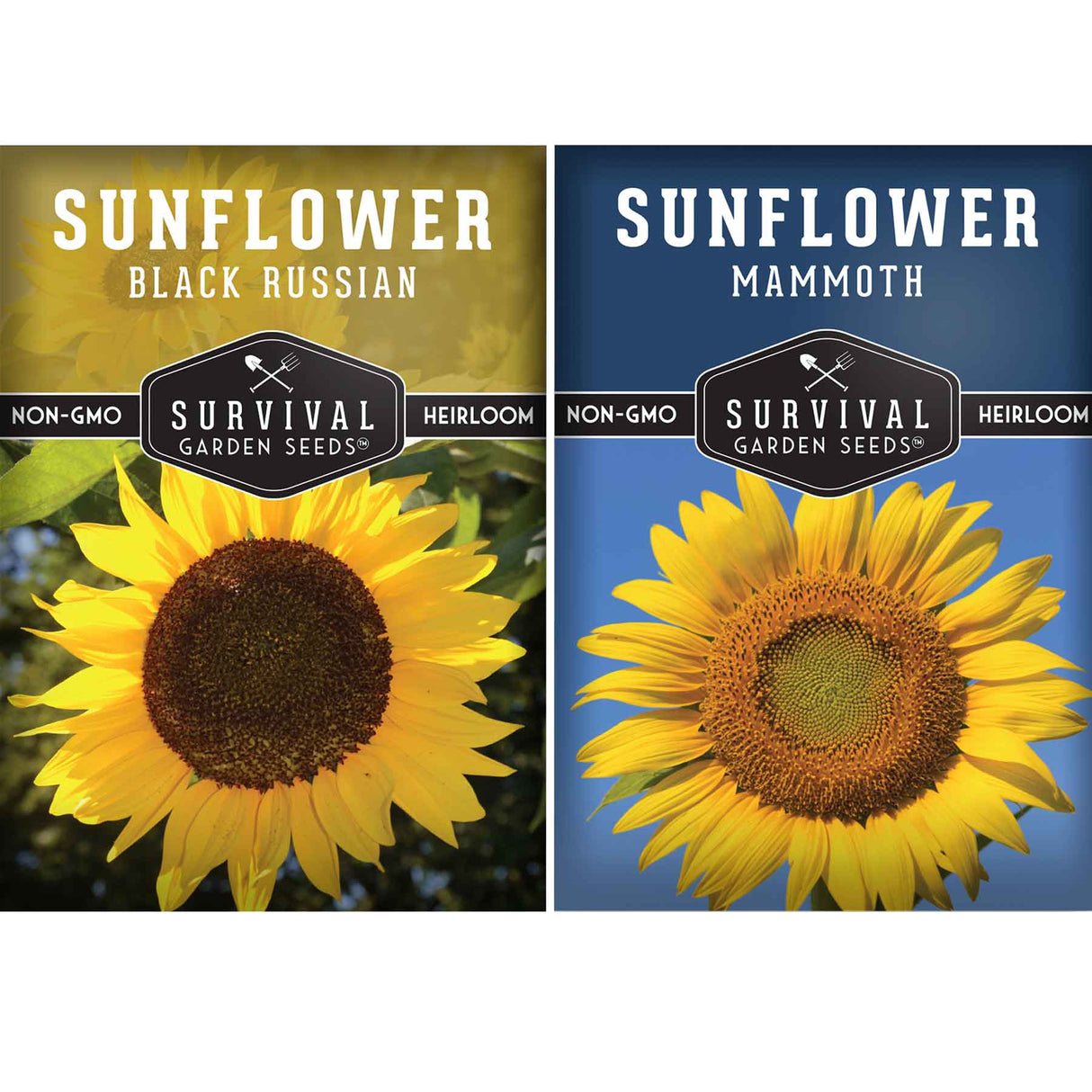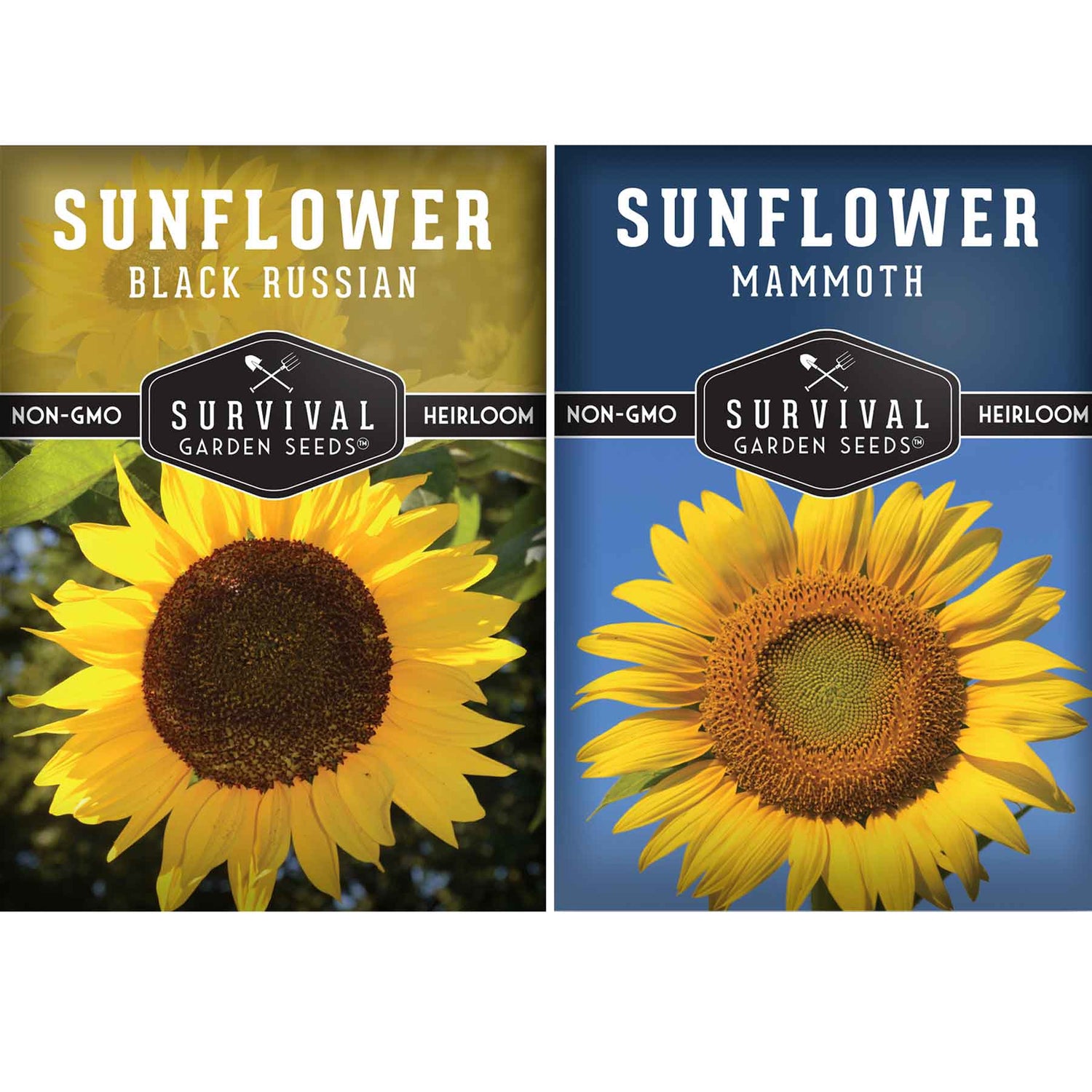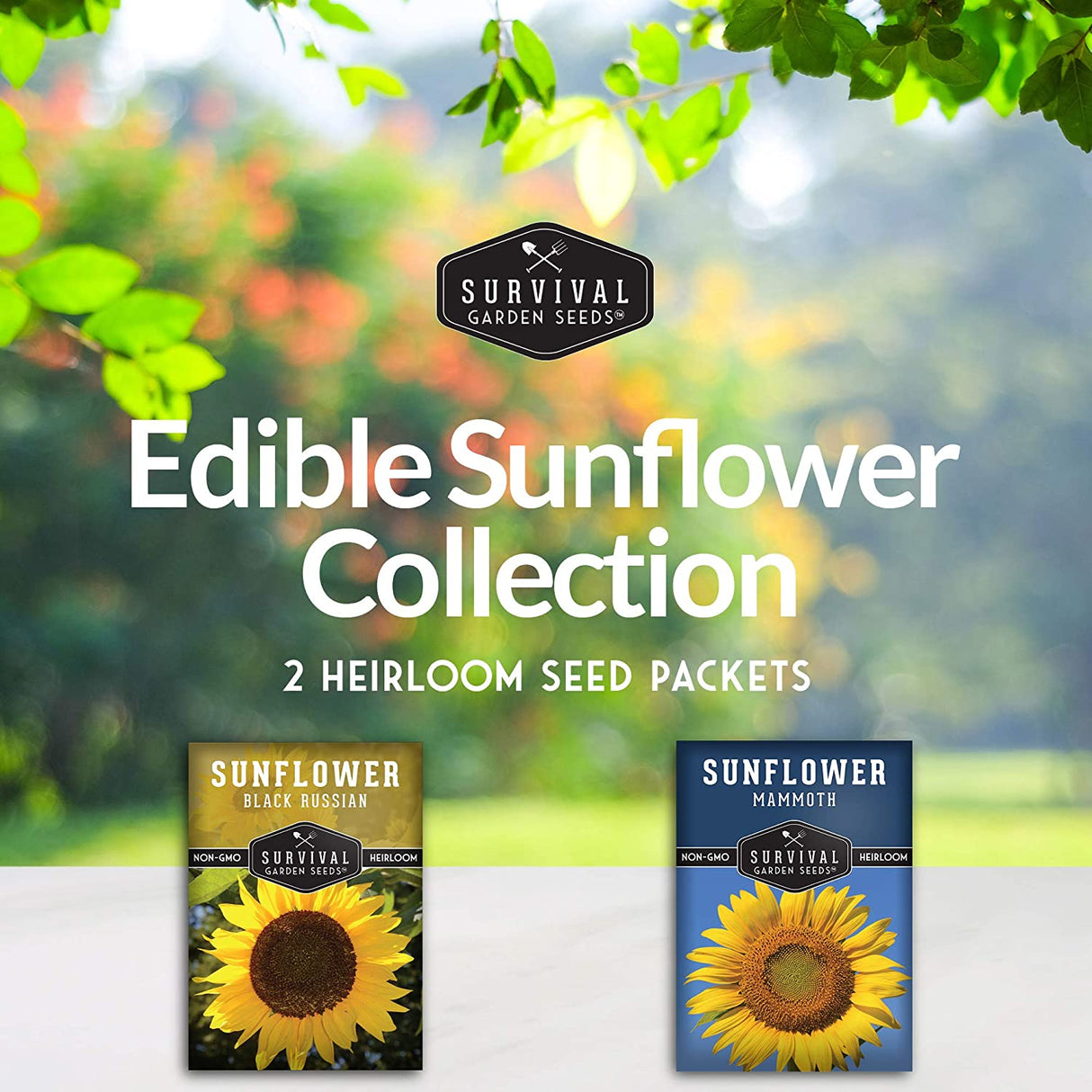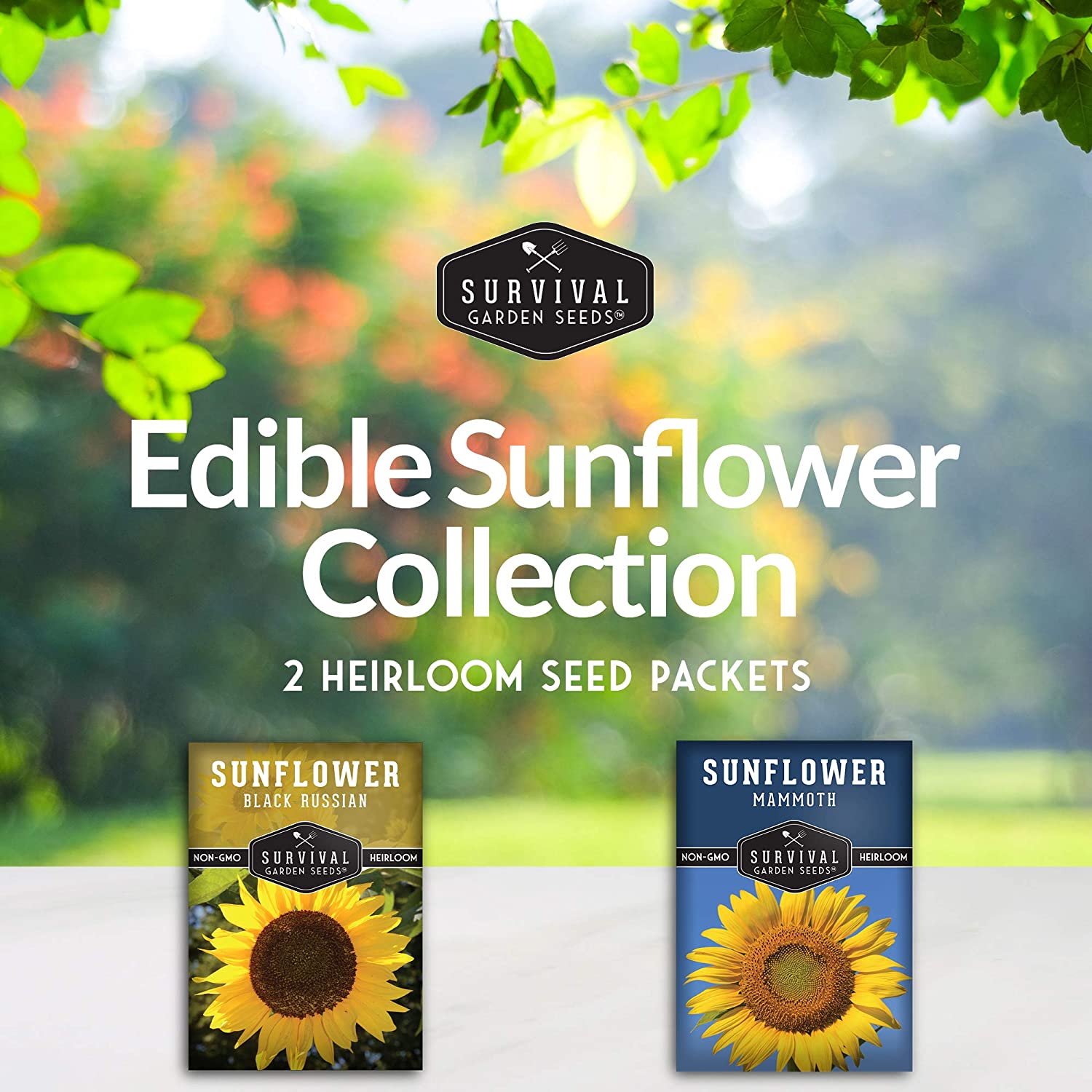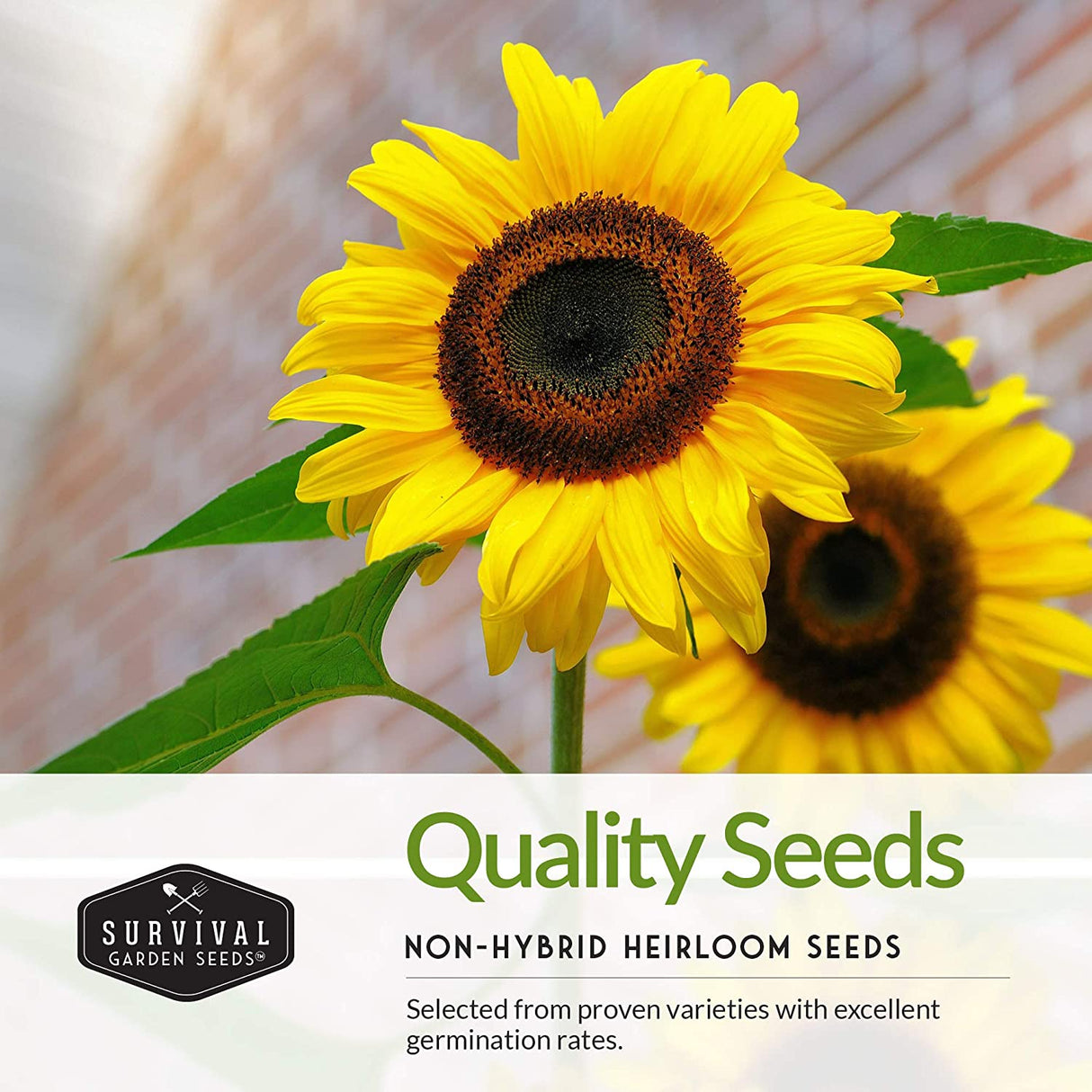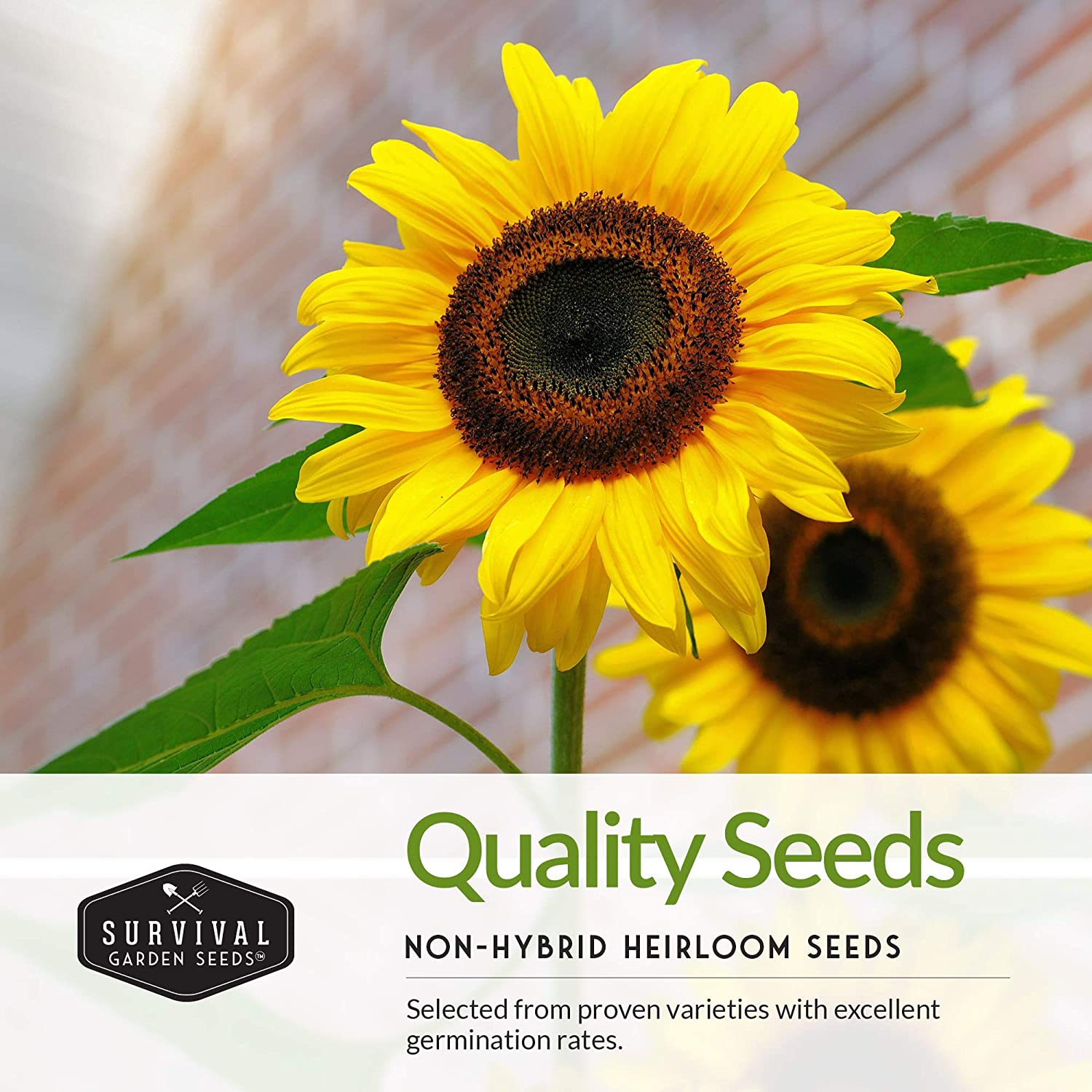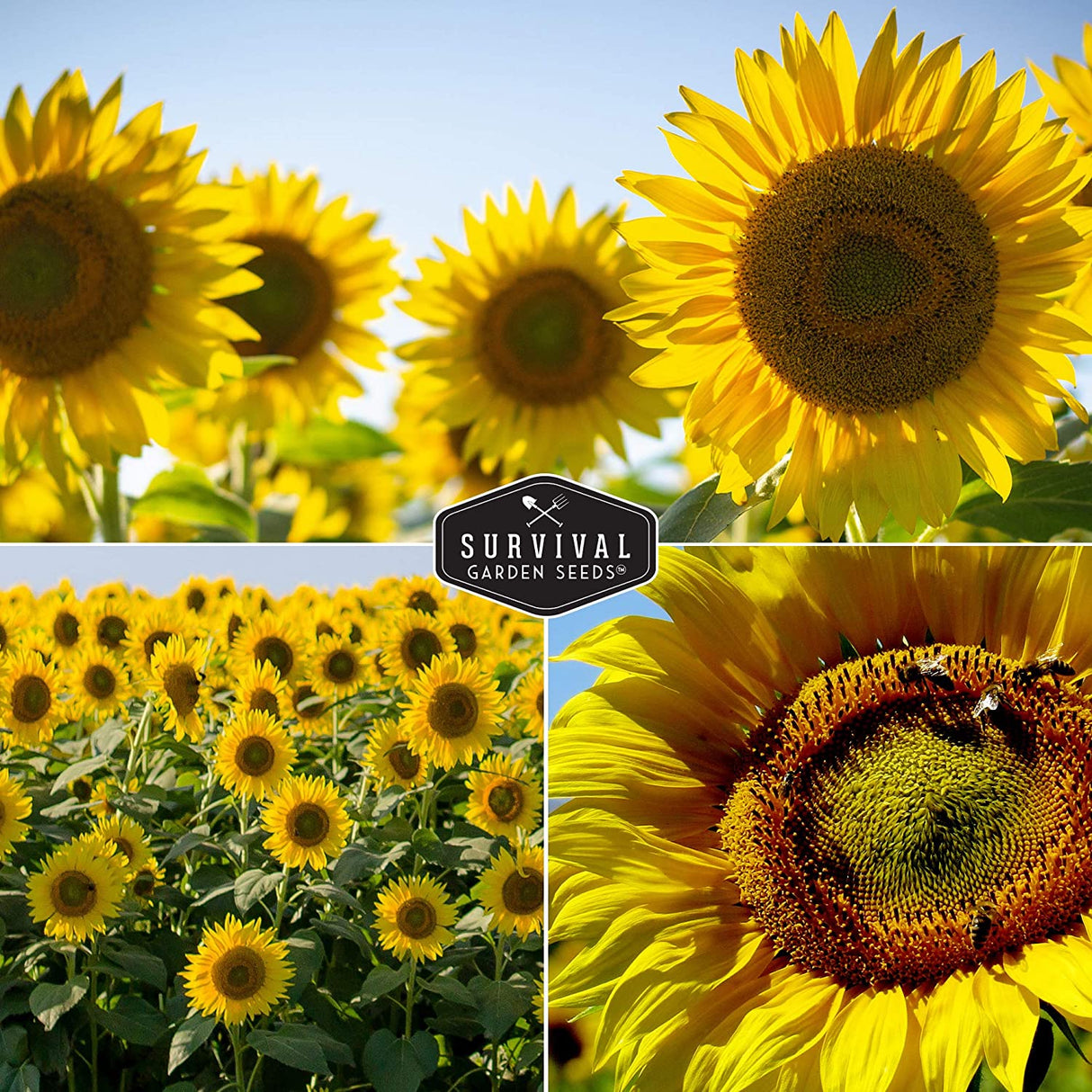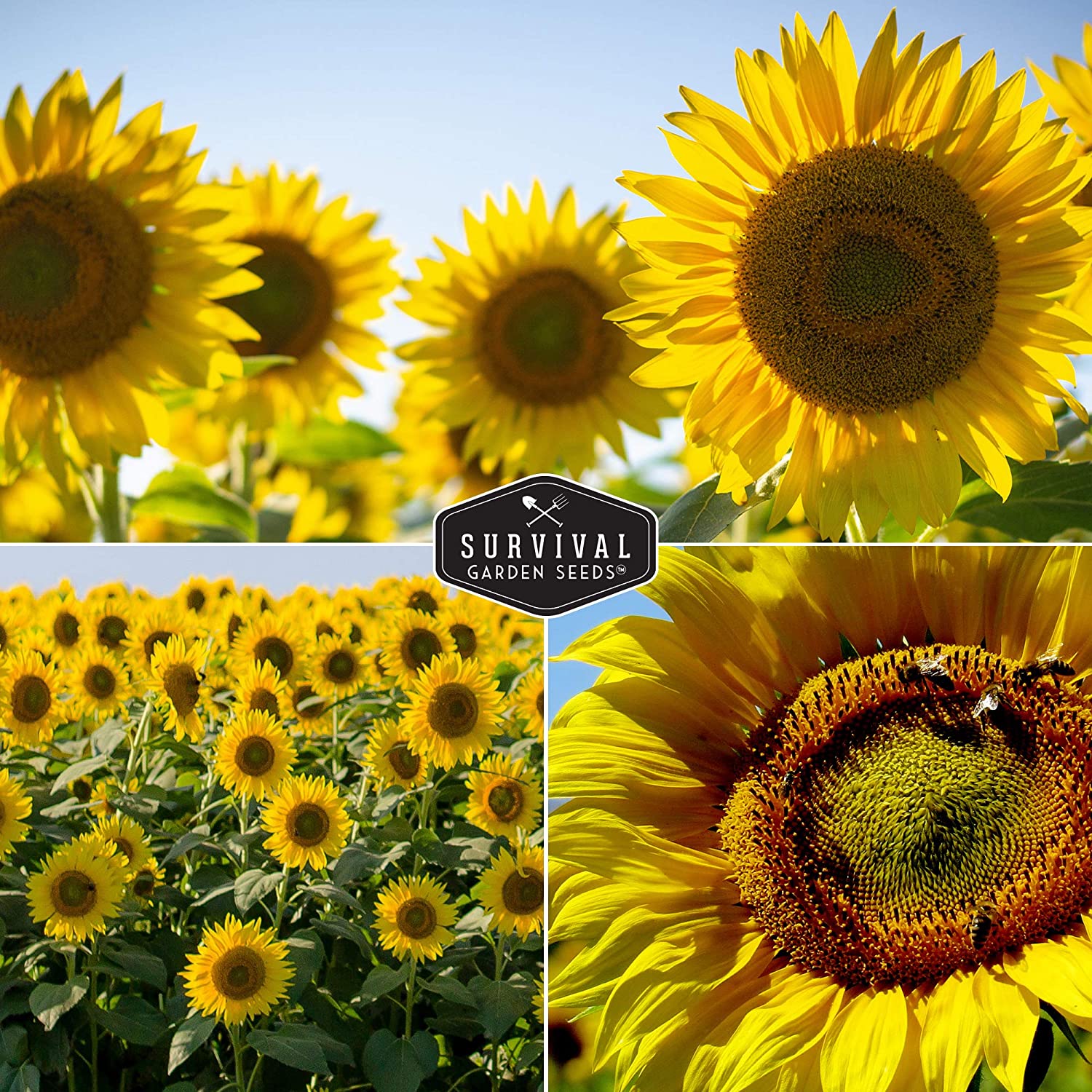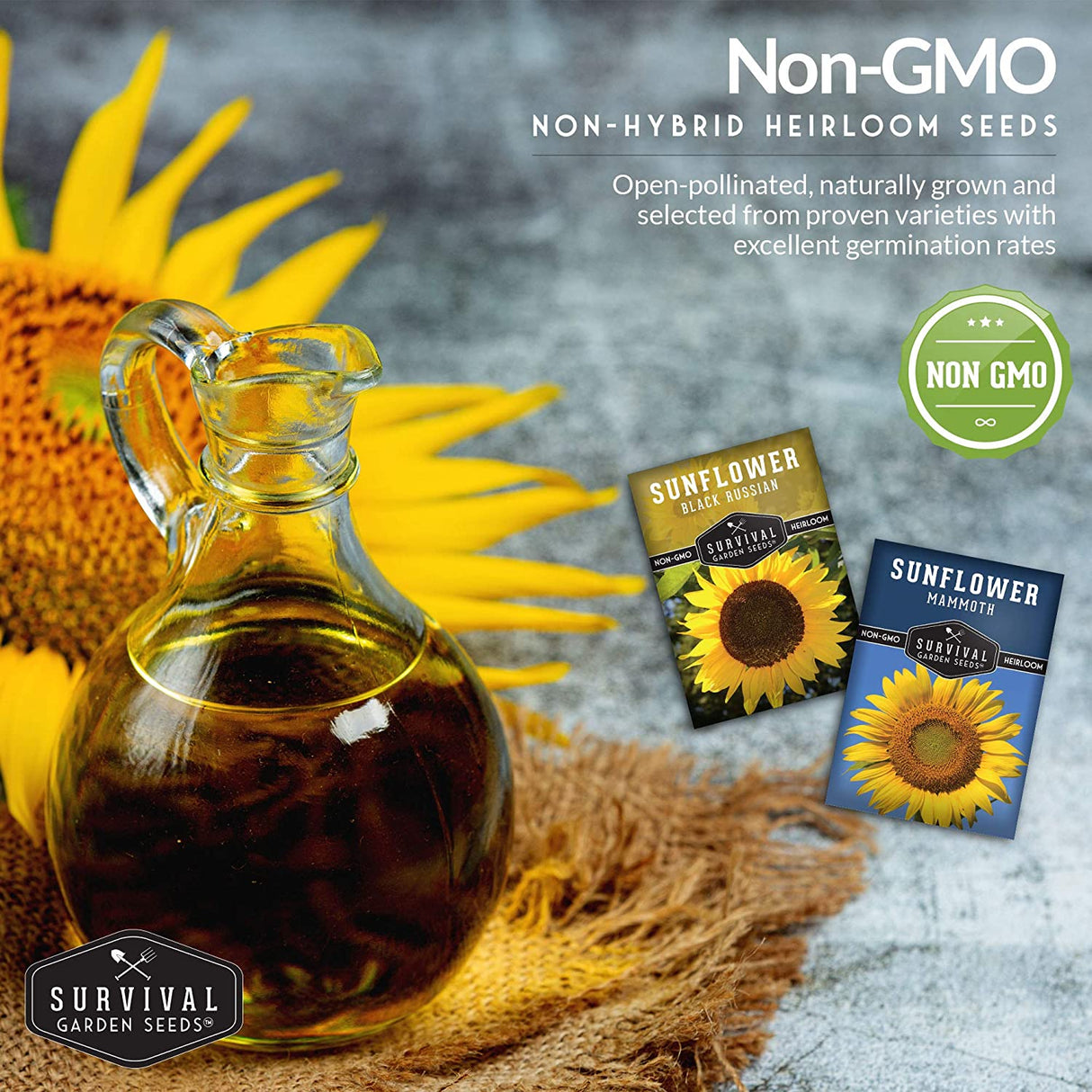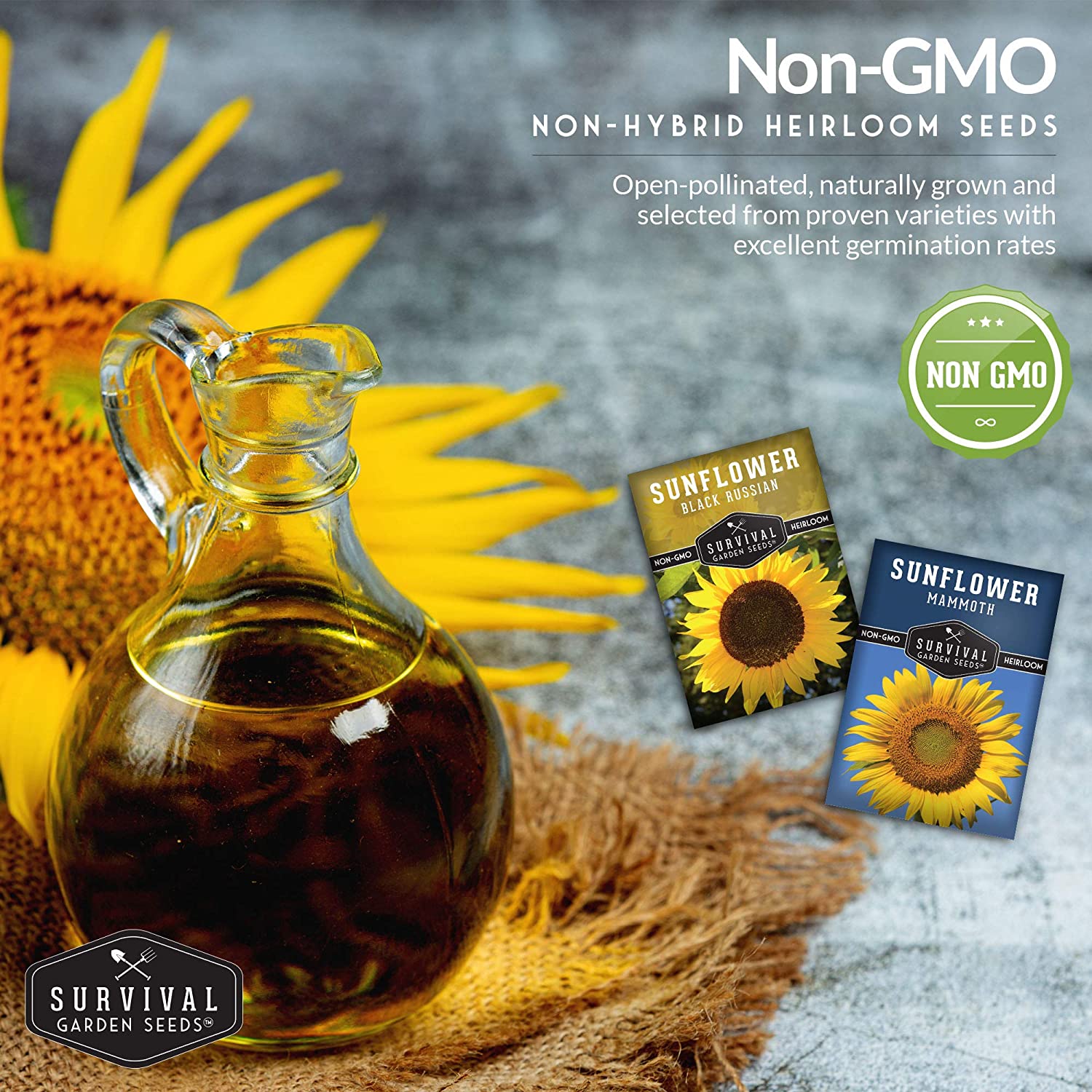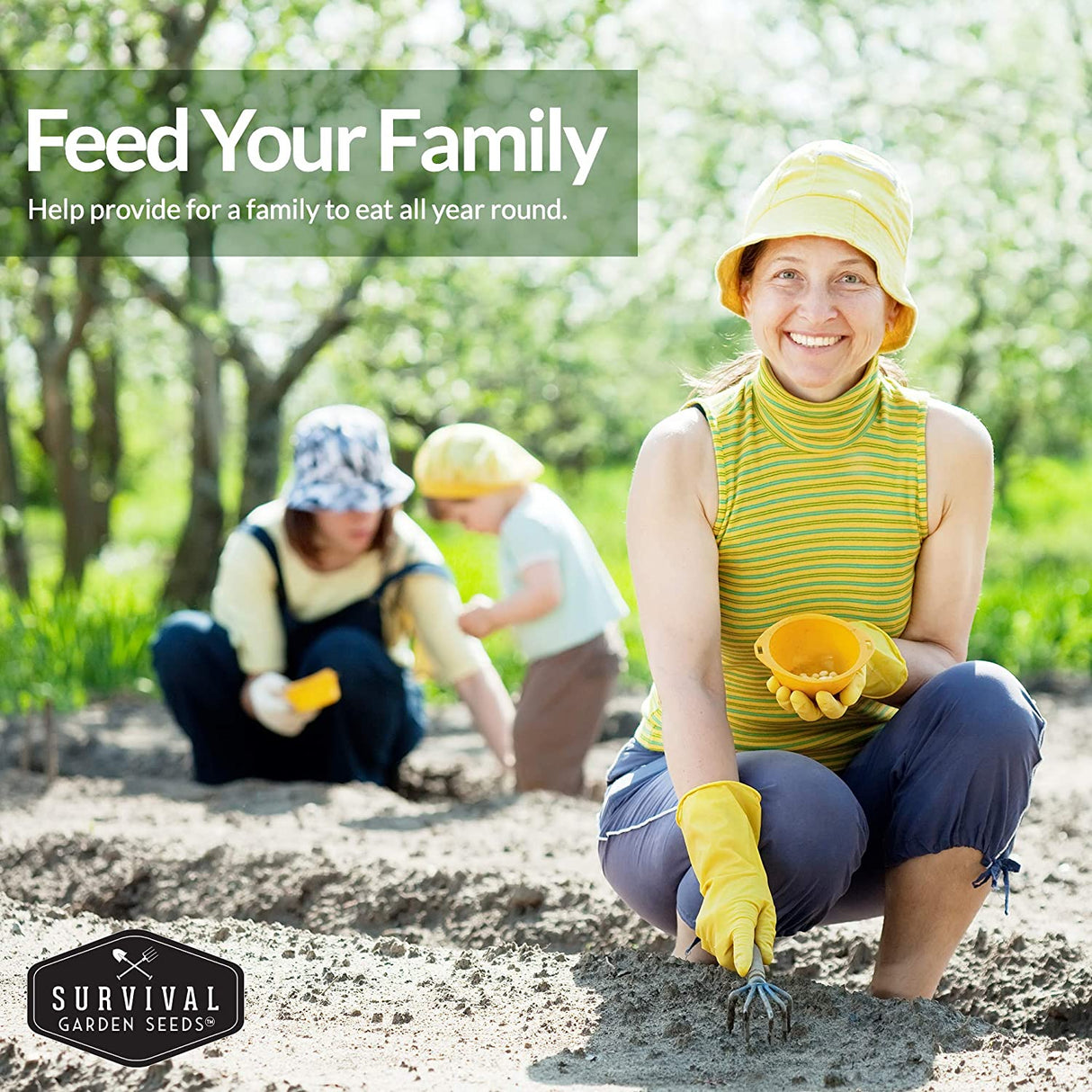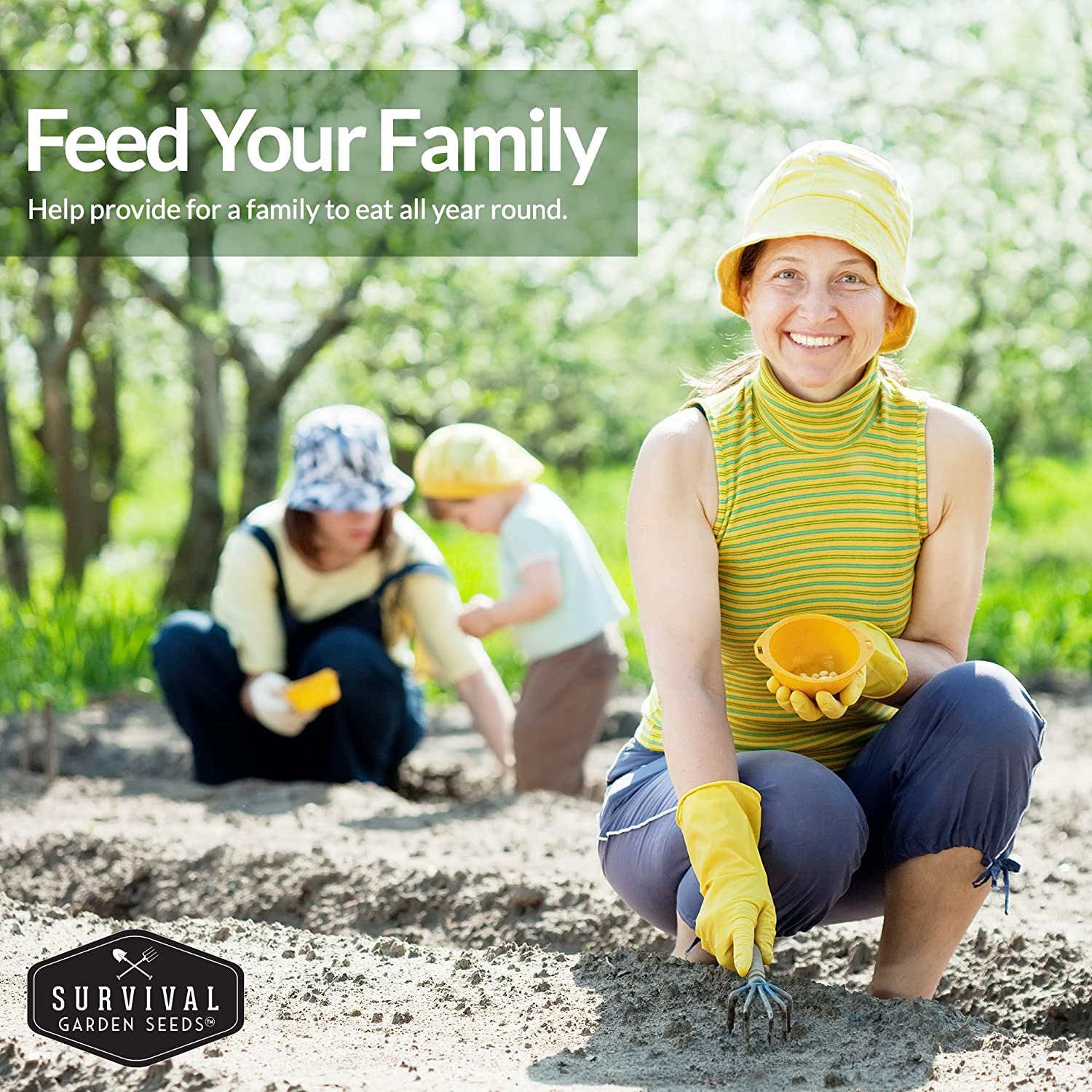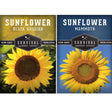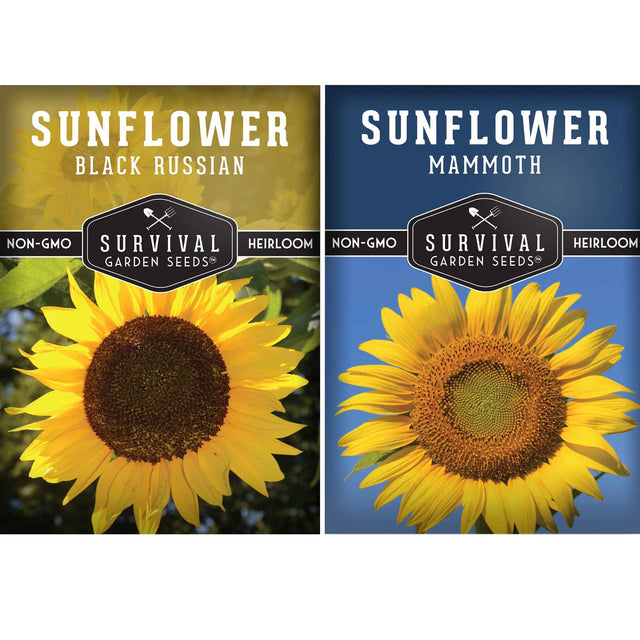Edible Sunflower Seeds Collection – Mammoth & Black Russian Heirloom Non-GMO Varieties for Roasting, Bird Feed & Towering Garden Displays
Heirloom - Non-GMO - Reliable Germination
Edible Sunflower Seeds Collection – Mammoth & Black Russian Heirloom Non-GMO Varieties for Roasting, Bird Feed & Towering Garden Displays is backordered and will ship as soon as it is back in stock.
Couldn't load pickup availability
Grow towering, high-yield sunflowers with the Edible Sunflower Seeds Collection, featuring two classic heirloom non-GMO varieties—Mammoth and Black Russian. These dual-purpose giants deliver both spectacular golden blooms and abundant edible seeds, perfect for roasting, snacking, or feeding backyard birds.
Reaching 8–12 feet tall, these sunflowers produce massive flower heads packed with oil-rich seeds while creating a stunning focal point in the garden. Ideal for homesteads, pollinator gardens, and large landscapes, they combine ornamental beauty with practical harvest value.
Towering, Productive, and Pollinator-Friendly:
- Includes two giant heirloom types: Mammoth (bright yellow petals) and Black Russian (gold petals with dark centers).
- Produces hundreds of large, edible seeds per bloom for roasting or bird feed.
- Creates bold, structural height and vibrant summer-to-fall garden color.
- Supports bees, butterflies, and birds, enriching biodiversity year-round.
Why Gardeners Love This Sunflower Collection:
- Dual-Purpose Value – Grows for both beauty and food, producing edible seeds and wildlife feed.
- Giant Garden Presence – 8–12 ft stalks with massive heads make perfect privacy screens or borders.
- Easy to Grow – Thrives in full sun and well-drained soil across USDA Zones 3–11.
- Low Maintenance – Drought-tolerant once established and reliable in hot climates.
- Perfect for All Garden Types – Great for homesteads, large plots, or ornamental displays.
How to Grow Edible Sunflowers:
- When to Plant: Sow seeds outdoors after the last frost when soil warms above 60°F (16°C).
- Soil & Sun: Choose full sun and average, well-drained soil; amend with compost for best results.
- Spacing: Allow 18–24 inches between plants to support large heads and sturdy stems.
- Watering: Water deeply once per week to encourage strong root growth.
- Bloom & Harvest: Blooms appear mid-summer through fall; allow heads to dry on the stalk before collecting seeds.
Harvest & Use:
Once petals fade and seed heads dry, remove and hang them to finish curing. Enjoy home-roasted sunflower seeds, share with backyard birds, or save for next season’s planting. Their towering beauty and generous harvest make this collection a favorite for gardeners seeking both productivity and visual impact.
Heirloom Garden Seeds
All of our seeds are open-pollinated, non-GMO, heirloom varieties with tested germination rates
Payment & Security
Payment methods
Your payment information is processed securely. We do not store credit card details nor have access to your credit card information.
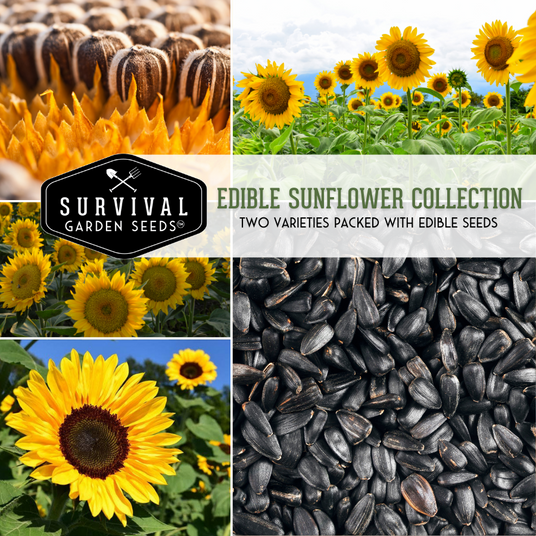
Sunflowers Have Multiple Benefits
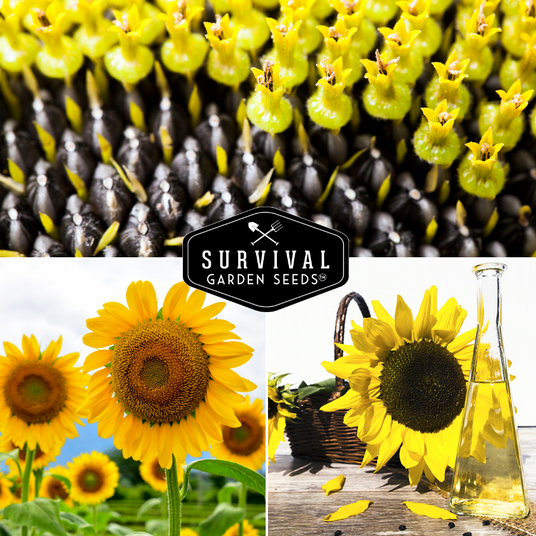
Sun Lovers
Why Choose Survival Garden Seeds
At Survival Garden Seeds, we believe in preparing today for tomorrow’s peace of mind. That’s why we offer only heirloom, non-GMO, and untreated seeds you can trust to nourish your family and support a sustainable lifestyle. As a family-owned American company, we’re committed to providing seeds that grow strong and true—helping you cultivate health, resilience, and beauty in your garden.
Frequently Asked Questions
Are your seeds heirloom and open-pollinated?
Are your seeds heirloom and open-pollinated?
Yes. All of our seeds are heirloom, open-pollinated varieties, which means they can produce seeds that grow true to type and are suitable for seed saving.
You can learn more about open-pollinated, heirloom, and non-GMO seeds in our Survival Garden Training blog.
Are your seeds non-GMO?
Are your seeds non-GMO?
Yes. All Survival Garden Seeds are 100% non-GMO. Our seeds are open-pollinated heirloom varieties and are never genetically modified.
Are your seeds treated with chemicals?
Are your seeds treated with chemicals?
No. Our seeds are completely untreated and free from chemical coatings, fungicides, or synthetic treatments.
How do I know my seeds are fresh?
How do I know my seeds are fresh?
Every seed packet includes a packed-for date, and we germination-test each seed lot before packaging to ensure high viability.
What is the shelf life of your seeds?
What is the shelf life of your seeds?
Most seeds remain viable for 3 to 5 years or longer when stored properly in a cool, dry place away from light and moisture.
In what USDA hardiness zones can I grow your seeds?
In what USDA hardiness zones can I grow your seeds?
Our varieties are selected to grow successfully across USDA Hardiness Zones 3 through 10. Each packet includes variety-specific planting guidance and germination tips.

